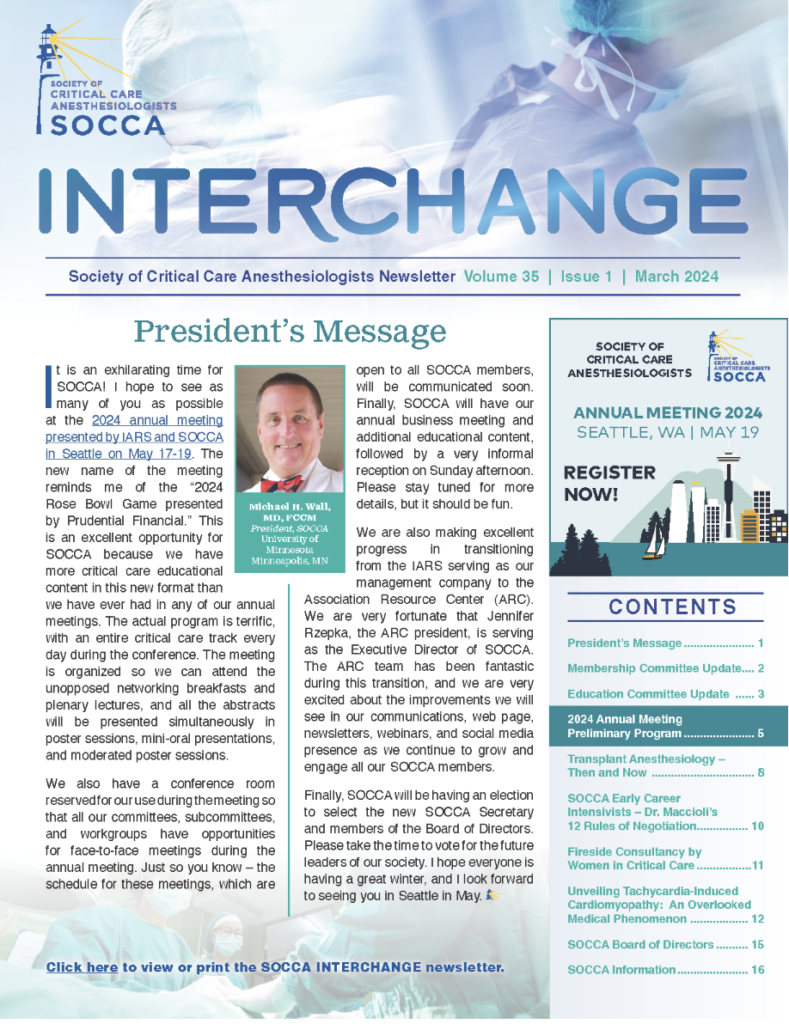President’s Corner
Colleagues,
I hope you all had a happy Thanksgiving and have a happy and healthy holiday season (so far), avoiding COVID, RSV, adenovirus, and Influenza. Good Grief.
The education committee has planned an extraordinary annual meeting which will take place in Denver, Colorado on April 14, 2023. On Saturday April 15th, there is an impressive lineup of educational events during the IARS, AUA, and SOCCA-aligned meeting day. Most importantly, I hope you plan to attend the SOCCA Women in Critical Care and SOCCA Early Career group meet-up and networking events between 7:00-9:00 PM on Thursday, April 13. There is also a reception on Friday, April 14, from 7:30-9:30 PM. It will be great to see everyone in person again.
Continue Reading…


































